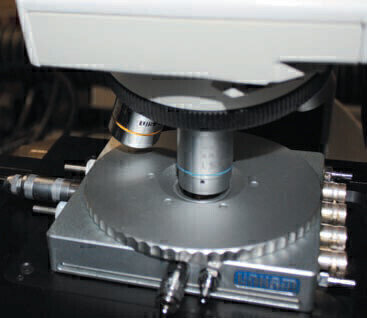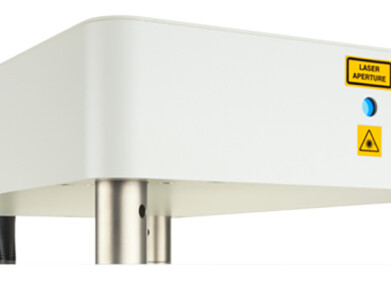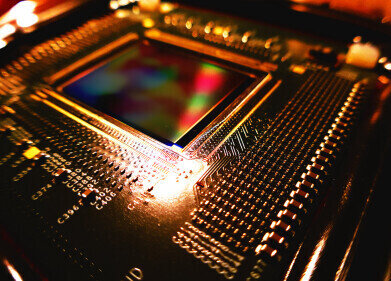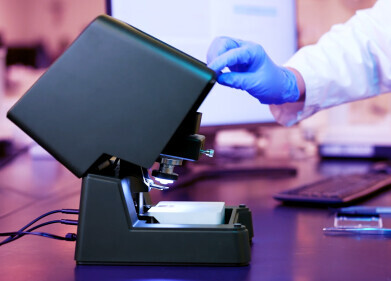Microscopy & Microtechniques
Temperature Controlled Probe Stage used in Conjunction with Raman Microscopy
Mar 19 2012
Market leaders in temperature controlled microscopy, Linkam Scientific Instruments, report on the work of Dr Sharath Sriram, a Research Fellow at RMIT University in Melbourne, Australia. He uses Linkam specialist temperature stages with micro-Raman spectroscopy systems to investigate temperature dependent spectral measurements.
Dr Sriram's interests in characterising piezoelectric thin films led him to choose temperature controlled stages from Linkam for use in combination with a Renishaw inVia Raman microscope. The piezoelectric effect is where an applied pressure generates an electrical charge in certain solid materials. This characteristic is useful for the production and detection of sound, generation of high voltages, generation of electron frequencies, and the ultrafine focusing of optical assemblies. This affect also forms the basis of scanning probe microscopy techniques.
The Groups main area of work has been the investigation of the reversal and pinning of Curie point transformation in thin film piezoelectrics. Using The HFS91-PB4 (HFS600) Linkam stage PSZT thin films were heated to 350°C and cooled at 10°C/min in situ with real-time collection of Raman spectra. This enabled the researchers to determine two main Raman peaks for the film at room temperature, ~575 and ~744cm-¹ (at which point the film had a rhombohedral structure). Controlled heating and cooling of the thin film causes peaks and intensity changes at the Curie point. This is indicative of a phase change occurring at the Curie point, where the film changes from a rhombohedral arrangement to a symmetrical cubic arrangement. This phase change coincides with loss of piezoelectric charge and piezoelectrical structure. With controlled cooling the cubic phase reverses back to the rhombohedral phase with minimum hysteresis, and piezoelectrical potential.
This Curie point transformation from cubic to rhombohedral can be disrupted by uncontrolled cooling, which results in locking in place the peak positions and intensities indicating a permanent phase change and the material remaining ‘locked’ in the cubic phase. This shows fast cooling permanently removes the piezoelectric charge within a material.
Future research will make use of the probe capability of the stage to apply an electrical bias and study Raman spectrum changes in various piezoelectric thin film samples.
Digital Edition
International Labmate Buyers' Guide 2024/25
June 2024
Buyers' Guide featuring: Product Listings & Manufacturers Directory Chromatography Articles - Enhancing HPLC Field Service with fast-response, non-invasive flowmeters - Digital transformatio...
View all digital editions
Events
Jul 03 2024 Gandhinagar, India
Jul 07 2024 Dublin, Ireland
Jul 20 2024 Denver, CO, USA
Jul 21 2024 Cape Town, South Africa
Jul 28 2024 San Diego, CA USA


















